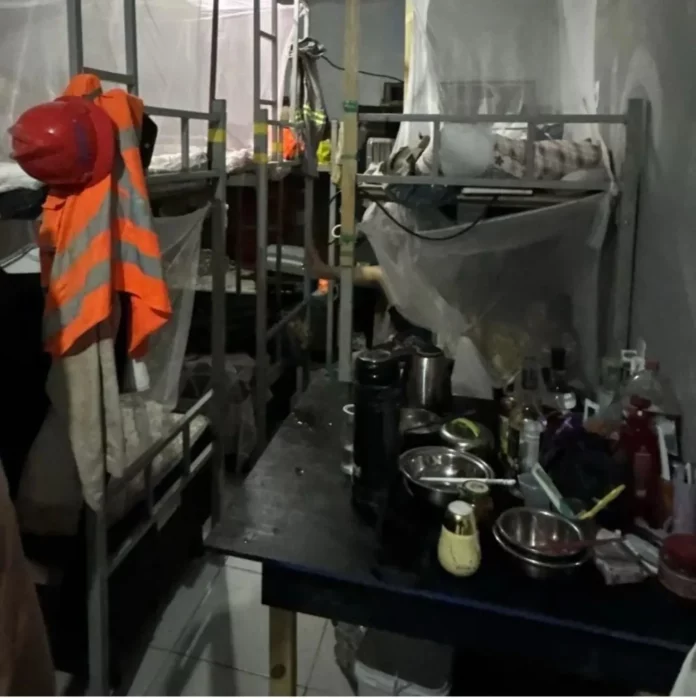In a shocking revelation that has sparked global outrage, the Brazilian government has suspended the construction of a factory intended for the Chinese electric vehicle (EV) manufacturer BYD after the discovery of appalling working conditions. More than 160 workers were rescued from what authorities described as “slavery-like” conditions, following investigations by the Brazilian Public Labour Prosecutor’s Office (MPT). The scandal has raised serious questions about labor practices within global supply chains and the treatment of workers in international construction projects.
The factory, located in the state of Bahia, was set to be BYD’s first electric vehicle production facility outside of Asia, underscoring Brazil’s significance as a strategic market for the company. However, the troubling findings at the construction site have put a halt to operations, as local authorities scramble to address a crisis that has drawn attention to the exploitation of vulnerable laborers in the country.
Alarming Working Conditions
The investigation, carried out by the MPT, revealed widespread abuse and exploitation at the hands of the construction company responsible for building the factory, Jinjiang Construction Brazil. The workers, primarily hired to assist in the construction of the plant, were subjected to what the MPT described as “degrading” living conditions. These workers, many of whom had their passports and wages withheld, were forced to live in overcrowded and unsanitary facilities in Camaçari city.
Among the most shocking findings were the appalling housing conditions. Reports indicated that workers were made to sleep on bare beds without mattresses, while shared bathrooms served up to 31 workers at a time. These dire living conditions forced workers to wake up early every day to prepare for long hours of work, often in unsafe and unhealthy environments.
In a statement, the MPT condemned the situation, saying, “The conditions found in the lodgings revealed an alarming picture of precariousness and degradation.” These findings were compounded by evidence of debt bondage, a situation in which workers were effectively trapped in their employment due to the withholding of salaries and the exorbitant costs of contract termination.
The legal framework in Brazil defines such circumstances as “slavery-like conditions,” a designation that reflects the severe violation of workers’ rights and human dignity. Under Brazilian law, forced labor and debt bondage are strictly prohibited, yet this situation mirrored the darkest aspects of industrial exploitation.
BYD’s Response: Severing Ties and Relocation of Workers
In response to the shocking revelations, BYD, one of the world’s largest EV manufacturers, issued a statement confirming its decision to sever ties with Jinjiang Construction Brazil. The company announced that it had taken immediate action by moving the affected workers to hotels, ensuring their safety and well-being.
BYD also expressed its commitment to ensuring full compliance with Brazilian labor laws, emphasizing that it had repeatedly requested improvements to the living and working conditions at the construction site prior to the investigation. Despite these requests, the construction firm’s practices remained unacceptable, forcing BYD to take swift and decisive action.
“We are deeply concerned by the treatment of the workers and are fully committed to ensuring such conditions are never repeated,” BYD stated. The company also promised to cooperate fully with Brazilian authorities as they continue their investigation into the matter.
The halted factory project was part of BYD’s larger strategy to expand its footprint in Brazil, a country that has become a key hub for the company’s electric vehicle production. With a $484.2 million investment in the factory, BYD had been poised to make a significant impact on the growing EV market in Latin America.
Background on BYD’s Brazilian Expansion
BYD’s investment in Brazil represents the company’s broader strategy to expand its presence outside of Asia, with the Brazilian market being one of the most significant in its global push. The company first entered Brazil in 2015, establishing a facility in São Paulo, and has since increased its investments in the country. The new factory, planned for Bahia, was expected to boost the company’s capacity to meet the rising demand for electric vehicles in the region.
In recent years, BYD has gained ground on its competitors, including Tesla, in the global electric vehicle market. In fact, the company surpassed Tesla in sales during the final quarter of 2023, positioning itself as a major player in the rapidly growing EV sector. However, the labor scandal at the Bahia construction site has raised concerns about the ethical implications of such rapid expansion, particularly when it comes to worker treatment and the environmental and social impact of large-scale manufacturing projects.
A Global Call for Accountability
The scandal in Bahia has shone a spotlight on the global supply chains of major corporations, particularly in the context of developing nations like Brazil, where labor laws can sometimes be difficult to enforce. The discovery of such extreme labor abuses has sparked international condemnation, with human rights organizations demanding that BYD and other multinational companies ensure better oversight of their subcontractors.

